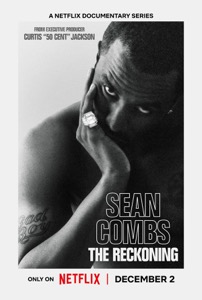News
The Ten Commandments in Schools: A Necessary Change or a Constitutional Violation?
The recent enactment of a Louisiana law mandating the display of the Ten Commandments in public school classrooms has ignited a national debate on the role of religion in education. This controversial legislation, signed by Governor Jeff Landry, requires all public K-12 classrooms and state-funded universities to prominently display the Ten Commandments. As legal challenges mount, the question remains: Is this law a necessary change to address moral decay, or does it violate constitutional principles?
Public Opinion and Religious Demographics
The law reflects a broader trend in public sentiment regarding religion in schools. According to a 2023 Pew Research Center survey, 37% of Americans believe there is too little religion in public education, while 31% think the current level is appropriate. This divide underscores the complex relationship between faith and public institutions in the United States.
Louisiana’s religious landscape plays a significant role in this debate. The state has a strong Christian majority, with approximately 84% of adults identifying as Christian, including 46% who are evangelical Protestants. Only about 13% of Louisiana residents are religiously unaffiliated, compared to the national average of 26%.
Legal Challenges and Constitutional Concerns
The law faces immediate legal challenges, with civil liberties groups, including the American Civil Liberties Union (ACLU), preparing to sue the state. These organizations argue that the law violates the First Amendment’s Establishment Clause, which prohibits the government from favoring one religion over others or non-religion.
Historically, similar laws have been struck down by the Supreme Court. In the 1980 case of Stone v. Graham, the Court ruled that a Kentucky law requiring the display of the Ten Commandments in public schools was unconstitutional. However, the current conservative majority on the Supreme Court may lead to a different interpretation of the Establishment Clause, potentially shifting towards a view that emphasizes historical practices.
Implementation and Requirements
The law specifies that the Ten Commandments must be displayed on posters at least 11 inches by 14 inches in size, using a large, easily readable font. Schools are not required to fund these displays themselves but can accept donations for their purchase. This provision attempts to navigate around previous court rulings that have restricted government funding of religious displays.
Addressing Moral Decay and Violence
Supporters of the law argue that the Ten Commandments are foundational to the legal and moral framework of the United States and that their display in schools can provide ethical guidance to students. Governor Landry and other proponents believe that the commandments can help address issues of moral decay and violence in schools by instilling a sense of right and wrong.
Statistics from the National Center for Education Statistics (NCES) indicate that incidents of violence in schools have been a growing concern. In the 2021-2022 school year, 20% of public schools reported at least one incident of physical attack or fight without a weapon, up from 15% in the 2015-2016 school year. Proponents argue that reinforcing moral values through the Ten Commandments could help mitigate such issues.
Broader Implications and National Trend
Louisiana’s law is part of a larger conservative Christian legislative movement gaining momentum in several states. For instance, Texas is considering similar mandates. This trend reflects a growing push to incorporate religious elements into public education, raising concerns about the impact on students from diverse religious backgrounds and those with no religious affiliation.
Educational Impact and Hidden Curriculum
Curriculum experts warn about the potential effects of this law on the “hidden curriculum” – the implicit lessons taught through school policies and practices. There are concerns that mandating religious displays could create an environment that feels hostile to non-Christian students, potentially undermining efforts to embrace religious diversity in public education.
As this debate unfolds, it highlights the ongoing tension between religious expression and secular governance in American public life. The outcome of Louisiana’s Ten Commandments law and similar initiatives across the country will likely have far-reaching implications for the interpretation of the First Amendment and the future of religious displays in public institutions.
While the intention behind the law may be to provide moral guidance to students, its implementation raises serious constitutional and ethical concerns. The ongoing legal battle will determine whether this approach is a necessary change to address moral decay and violence in schools or a violation of the foundational principles of religious freedom and separation of church and state.
Business
Google Accused Of Favoring White, Asian Staff As It Reaches $28 Million Deal That Excludes Black Workers

Google has tentatively agreed to a $28 million settlement in a California class‑action lawsuit alleging that white and Asian employees were routinely paid more and placed on faster career tracks than colleagues from other racial and ethnic backgrounds.
- A Santa Clara County Superior Court judge has granted preliminary approval, calling the deal “fair” and noting that it could cover more than 6,600 current and former Google workers employed in the state between 2018 and 2024.

How The Discrimination Claims Emerged
The lawsuit was brought by former Google employee Ana Cantu, who identifies as Mexican and racially Indigenous and worked in people operations and cloud departments for about seven years. Cantu alleges that despite strong performance, she remained stuck at the same level while white and Asian colleagues doing similar work received higher pay, higher “levels,” and more frequent promotions.
Cantu’s complaint claims that Latino, Indigenous, Native American, Native Hawaiian, Pacific Islander, and Alaska Native employees were systematically underpaid compared with white and Asian coworkers performing substantially similar roles. The suit also says employees who raised concerns about pay and leveling saw raises and promotions withheld, reinforcing what plaintiffs describe as a two‑tiered system inside the company.
Why Black Employees Were Left Out
Cantu’s legal team ultimately agreed to narrow the class to employees whose race and ethnicity were “most closely aligned” with hers, a condition that cleared the path to the current settlement.

The judge noted that Black employees were explicitly excluded from the settlement class after negotiations, meaning they will not share in the $28 million payout even though they were named in earlier versions of the case. Separate litigation on behalf of Black Google employees alleging racial bias in pay and promotions remains pending, leaving their claims to be resolved in a different forum.
What The Settlement Provides
Of the $28 million total, about $20.4 million is expected to be distributed to eligible class members after legal fees and penalties are deducted. Eligible workers include those in California who self‑identified as Hispanic, Latinx, Indigenous, Native American, American Indian, Native Hawaiian, Pacific Islander, and/or Alaska Native during the covered period.
Beyond cash payments, Google has also agreed to take steps aimed at addressing the alleged disparities, including reviewing pay and leveling practices for racial and ethnic gaps. The settlement still needs final court approval at a hearing scheduled for later this year, and affected employees will have a chance to opt out or object before any money is distributed.
H2: Google’s Response And The Broader Stakes
A Google spokesperson has said the company disputes the allegations but chose to settle in order to move forward, while reiterating its public commitment to fair pay, hiring, and advancement for all employees. The company has emphasized ongoing internal audits and equity initiatives, though plaintiffs argue those efforts did not prevent or correct the disparities outlined in the lawsuit.
For many observers, the exclusion of Black workers from the settlement highlights the legal and strategic complexities of class‑action discrimination cases, especially in large, diverse workplaces. The outcome of the remaining lawsuit brought on behalf of Black employees, alongside this $28 million deal, will help define how one of the world’s most powerful tech companies is held accountable for alleged racial inequities in pay and promotion.
Entertainment
What We Can Learn Inside 50 Cent’s Explosive Diddy Documentary: 5 Reasons You Should Watch

50 Cent’s new Netflix docuseries about Sean “Diddy” Combs is more than a headline-grabbing exposé; it is a meticulous breakdown of how power, celebrity, and silence can collide in the entertainment industry.
Across its episodes, the series traces Diddy’s rise, the allegations that followed him for years, and the shocking footage and testimonies now forcing a wider cultural reckoning.

1. It Chronicles Diddy’s Rise and Fall – And How Power Warps Reality
The docuseries follows Combs from hitmaker and business icon to a figure facing serious criminal conviction and public disgrace, mapping out decades of influence, branding, and behind-the-scenes behavior. Watching that arc shows how money, fame, and industry relationships can shield someone from scrutiny and delay accountability, even as disturbing accusations accumulate.

2. Never-Before-Seen Footage Shows How Narratives Are Managed
Exclusive footage of Diddy in private settings and in the tense days around his legal troubles reveals how carefully celebrity narratives are shaped, even in crisis.
Viewers can learn to question polished statements and recognize that what looks spontaneous in public is often the result of strategy, damage control, and legal calculation.
3. Survivors’ Stories Highlight Patterns of Abuse and Silence
Interviews with alleged victims, former staff, and industry insiders describe patterns of control, fear, and emotional or physical harm that were long whispered about but rarely aired in this detail. Their stories underline how difficult it is to speak out against a powerful figure, teaching viewers why many survivors delay disclosure and why consistent patterns across multiple accounts matter.
4. 50 Cent’s Approach Shows Storytelling as a Tool for Accountability
As executive producer, 50 Cent uses his reputation and platform to push a project that leans into uncomfortable truths rather than protecting industry relationships. The series demonstrates how documentary storytelling can challenge established power structures, elevate marginalized voices, and pressure institutions to respond when traditional systems have failed.
5. The Cultural Backlash Reveals How Society Handles Celebrity Accountability
Reactions to the doc—ranging from people calling it necessary and brave to others dismissing it as a vendetta or smear campaign—expose how emotionally invested audiences can be in defending or condemning a famous figure. Watching that debate unfold helps viewers see how fandom, nostalgia, and bias influence who is believed, and why conversations about “cancel culture” often mask deeper questions about justice and who is considered too powerful to fall.
Business
Luana Lopes Lara: How a 29‑Year‑Old Became the Youngest Self‑Made Woman Billionaire

At just 29, Luana Lopes Lara has taken a title that usually belongs to pop stars and consumer‑app founders.
Multiple business outlets now recognize her as the world’s youngest self‑made woman billionaire, after her company Kalshi hit an 11 billion dollar valuation in a new funding round.
That round, a 1 billion dollar Series E led by Paradigm with Sequoia Capital, Andreessen Horowitz, CapitalG and others participating, instantly pushed both co‑founders into the three‑comma club. Estimates place Luana’s personal stake at roughly 12 percent of Kalshi, valuing her net worth at about 1.3 billion dollars—wealth tied directly to equity she helped create rather than inheritance.

Kalshi itself is a big part of why her ascent matters.
Founded in 2019, the New York–based company runs a federally regulated prediction‑market exchange where users trade yes‑or‑no contracts on real‑world events, from inflation reports to elections and sports outcomes.
As of late 2025, the platform has reached around 50 billion dollars in annualized trading volume, a thousand‑fold jump from roughly 300 million the year before, according to figures cited in TechCrunch and other financial press. That hyper‑growth convinced investors that event contracts are more than a niche curiosity, and it is this conviction—expressed in billions of dollars of new capital—that turned Luana’s share of Kalshi into a billion‑dollar fortune almost overnight.
Her path to that point is unusually demanding even by founder standards. Luana grew up in Brazil and trained at the Bolshoi Theater School’s Brazilian campus, where reports say she spent up to 13 hours a day in class and rehearsal, competing for places in a program that accepts fewer than 3 percent of applicants. After a stint dancing professionally in Austria, she pivoted into academics, enrolling at the Massachusetts Institute of Technology to study computer science and mathematics and later completing a master’s in engineering.
During summers she interned at major firms including Bridgewater Associates and Citadel, gaining a front‑row view of how global macro traders constantly bet on future events—but without a simple, regulated way for ordinary people to do the same.

That realization shaped Kalshi’s founding thesis and ultimately her billionaire status. Together with co‑founder Tarek Mansour, whom she met at MIT, Luana spent years persuading lawyers and U.S. regulators that a fully legal event‑trading exchange could exist under commodities law. Reports say more than 60 law firms turned them down before one agreed to help, and the company then spent roughly three years in licensing discussions with the Commodity Futures Trading Commission before gaining approval. The payoff is visible in 2025’s numbers: an 11‑billion‑dollar valuation, a 1‑billion‑dollar fresh capital injection, and a founder’s stake that makes Luana Lopes Lara not just a compelling story but a data point in how fast wealth can now be created at the intersection of finance, regulation, and software.




























